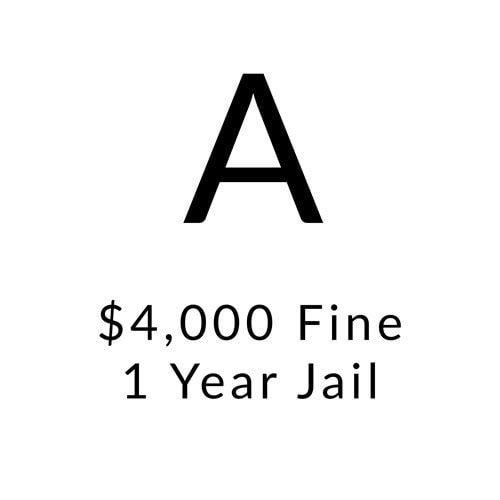Resisting Arrest in Fort Worth
Resisting arrest occurs when a person intentionally prevents or obstructs a peace officer from arresting, searching, or transporting them by using force against the peace officer or another.
Resisting arrest is a Class A misdemeanor in Texas, punishable by up to a year in the county jail and a maximum $4,000 fine. The use of force distinguishes Resisting Arrest from the offense of Evading Arrest.

What constitutes using force against an officer?
Merely refusing to cooperate with an arrest does not rise to the level of resisting arrest. Similarly, in order to prove that a person is guilty of resisting arrest, the prosecution must be able to show that the accused was about to be arrested, searched, or transported. In other words, using force to resist what would be considered detention does not rise to the level of a resisting arrest charge.
Some courts have drawn a distinction between the use of force directed against an officer from the use of force directed away from an officer. Here’s some examples of actions that courts found were sufficient (or insufficient) to support a conviction for resisting arrest.
- In Humphreys v. State, 565 S.W.2d 59, 60 (Tex.Crim.App.1978), the court found that striking an officer’s arms away, pushing at an officer, and struggling with officer was sufficient.
- In Sartain v. State, 228 S.W.3d 416, 425 (Tex.App.-Fort Worth 2007, pet. ref’d), the court found that flailing arms, striking an officer, pushing against officer and struggling causing a fall was sufficient;
- In Torres v. State, 103 S.W.3d 623, 627 (Tex.App.-San Antonio 2003, no pet.), the court found that raising up an arm and knocking an officer’s hand away was sufficient;
- In Bryant v. State, 923 S.W.2d 199, 208 (Tex.App.-Waco 1996, pet. ref’d), the court found that stiffening up and jerking back with a violent backward was sufficient;
- In Mayfield v. State, 758 S.W.2d 371, 374 (Tex.App.-Amarillo 1988, no pet.) the court found that attempts by the subject to “shoulder” or “elbow” an officer out of car, jerking against the officer’s grasp, and engaging in a “pretty violent” struggle was sufficient.
- In Raymond v. State, 640 S.W.2d 678 (Tex.App.-El Paso 1982, pet. ref’d), the court found that simple pulling away was insufficient.
Some cases explicitly hold that only a force directed toward an officer can support a conviction. See Leos, 880 S.W.2d 180. But most cases involve actions that are clearly more than a simple pulling away from the officer’s restraint.
- For example, in Haliburton v. State, 80 S.W.3d 309, 312–13 (Tex.App.-Fort Worth 2002, no pet.), the court found that kicking at officer but missing was sufficient;
- In Luxton v. State, 941 S.W.2d 339, 340–41 (Tex.App.-Fort Worth 1997, no pet.), the court found that pulling away, plus struggling or fighting with officers was sufficient;
- In Mayfield v. State, 758 S.W.2d at 373, the court found that using elbows and shoulder to shove the arresting officer out of moving car was sufficient;
- In Burke v. State, 692 S.W.2d 570, 571 (Tex.App.-Houston [14th Dist.] 1985, no pet.), the court found that striking an officer’s arm away was sufficient.
The Texas Court of Criminal Appeals in Dobbs v. State, concluded that “the statutory language plainly requires a use of force directed “against” the officer himself, not against his broader goal of effectuating an arrest. More information regarding resisting arrest can be found in Penal Code Section 38.03.
Can you lawfully resist an arrest if the arrest itself is unlawful?
You can be charged with resisting arrest even if the arrest itself was unlawful. (Conversely, you cannot be charged with Evading Arrest if the arrest itself was unlawful.) That being said, there are situations where the use of force to resist an arrest may be justified.
Are there ever legal justifications to resisting arrest?
Texas Penal Code 9.31(c) provides two instances in which the use of force to resist an arrest or search is justified:
- First, if, before the actor offers any resistance, the peace officer (or person acting at his direction) uses or attempts to use greater force than necessary to make the arrest or search then the use of force is justified.
- Second, when and to the degree the actor reasonably believes the force is immediately necessary to protect himself against the peace officer’s (or other person’s) use or attempted use of greater force than necessary, the resistance is justified.
What is the mental state requirement for resisting arrest?
Most offenses have a mental state requirement, but very few only allow for an allegation of “intentionally.” Resisting arrest is one of those offenses. In other words, the State must be able to prove that the accused acted “intentionally,” meaning the conscious objective or desire was to use force to prevent or obstruct arrest, search, or transport.
What is the punishment for resisting arrest with a deadly weapon?
If a deadly weapon is used to resist arrest, the offense becomes a third degree felony and the punishment ranges from two years to ten years in prison and up to a $10,000 fine.
What should you do if you are charged with Resisting Arrest?
If you or a loved one is facing a charge of resisting arrest, it’s important to contact an experienced defense attorney as soon as possible. Our attorneys aggressively defend charges for resisting arrest in Fort Worth. To learn more and to discuss the specifics of your case, call us today for a free consultation.





